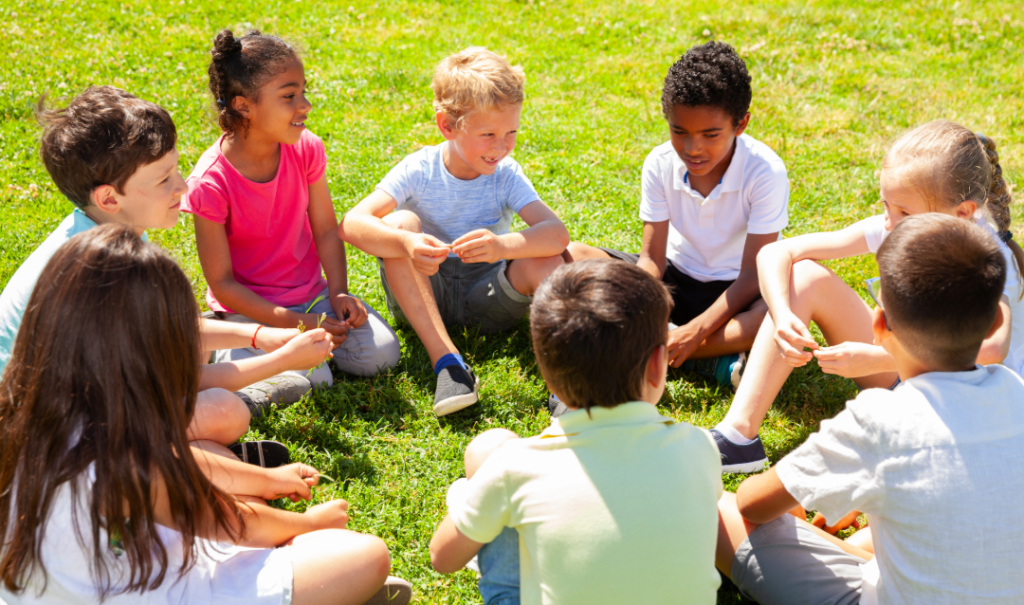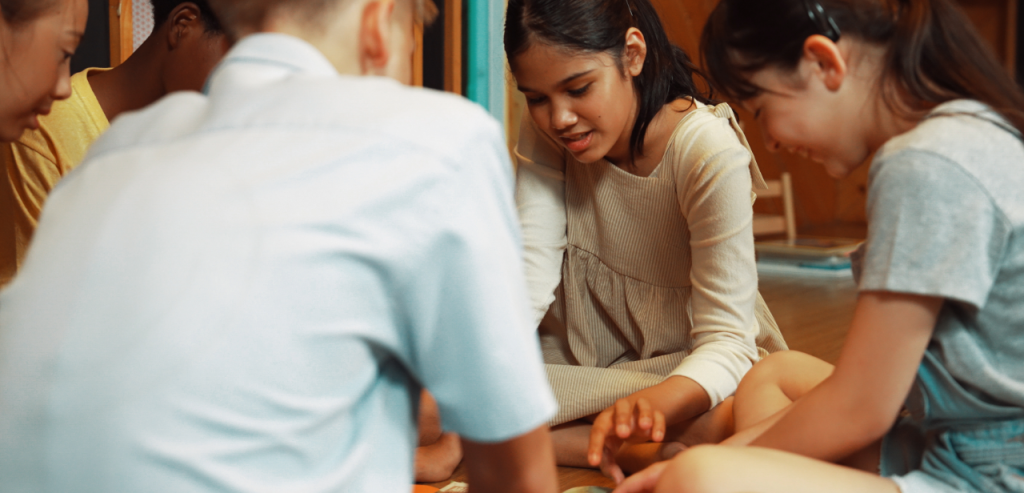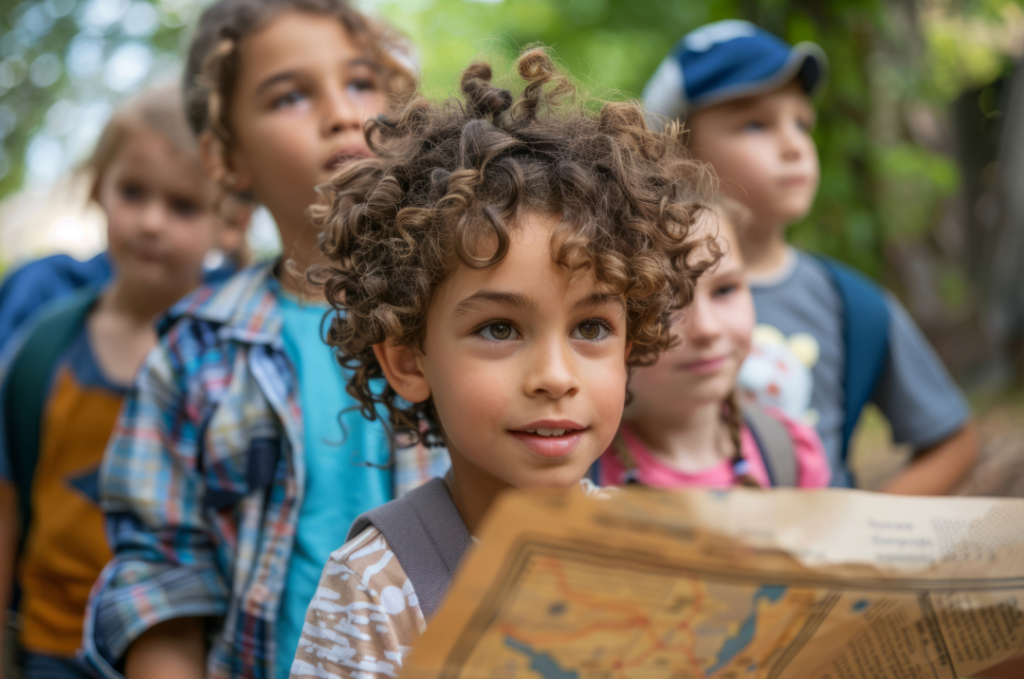The Profound Impact of Social Competence

In today's fast-paced world, the ability to forge meaningful connections and navigate social situations with finesse is an invaluable asset. For children, developing robust social skills is not merely a matter of etiquette but a foundation for their overall growth and well-being. Beyond facilitating seamless communication and fostering empathy, social skills play a pivotal role in shaping your child's self-esteem, emotional intelligence, and overall confidence. By equipping them with the tools to navigate social dynamics effectively, you empower them to forge lasting friendships, excel in academic pursuits, and thrive in future professional endeavors.
This comprehensive guide delves into the realm of social skills development, offering a wealth of activities and exercises tailored to enhance your child's social interactions and foster enduring bonds.
Nurturing social skills in children is a multifaceted endeavor that yields profound benefits across various aspects of their lives.
1. Breaking the Ice: Conversation Jenga
Initiating conversations and getting to know new people can be daunting, especially for children who may feel shy or apprehensive. "Conversation Jenga" offers a playful and engaging solution to this challenge. Caretakers can assign thought-provoking questions to Jenga blocks, and encourage children to engage in meaningful dialogue as they take turns removing pieces from the tower. This activity not only promotes active listening and communication skills but also fosters a sense of camaraderie and shared experiences. Similar therapeutic games can be found in online stores.
2. Unleashing Introspection: The Feelings Journal
While open communication is recommended, it is also crucial to provide children with a safe and private space to explore their innermost thoughts and emotions. The "Feelings Journal" activity offers a creative outlet for self-expression, allowing children to freely document their experiences, reflections, and emotions without the pressure of external judgment. Parents may encourage and assist children in decorating their journals with personal touches to further enhances their sense of ownership and investment in the process.
3. Fostering Teamwork: The Cooperation Obstacle Course
Teamwork is a vital component of social success, and what better way to cultivate this skill than through an engaging and physically challenging activity? The "Cooperation Obstacle Course" transforms the traditional obstacle course into a collaborative endeavor. As part of a playdate or group activity, caretakers can split children into teams and create obstacles that require communication, problem-solving, and coordination. Through participation, children learn invaluable lessons of trust, compromise, and collective effort.
4. Preparing for Life's Challenges: Problem-Solving Skits
Life is filled with unexpected situations that require effective problem-solving skills, and the "Problem-Solving Skits" activity provides children with a safe and engaging environment to practice crucial abilities. By reenacting scenarios that involve disagreements, conflicts, or challenging projects, children learn to navigate complex situations, develop empathy, and explore various solutions. This exercise not only enhances their social competence but also fosters critical thinking and creativity.

5. Weaving Tales Together: The Story Chain
Collaboration and teamwork are essential components of successful social interactions, and the "Story Chain" activity offers a delightful way to cultivate these skills. By taking turns adding to an improvised narrative, children learn to build upon each other's ideas, respect different perspectives, and collectively create a cohesive story. This exercise promotes creativity and imagination and also inspires camaraderie and shared accomplishment.
6. Spreading Kindness: Random Acts of Kindness Challenge
Teaching children the value of kindness and compassion is not only a valuable life lesson but also a powerful tool for enhancing positive social interactions. The "Random Acts of Kindness Challenge" encourages children to perform selfless deeds for others, whether it is helping a neighbor with their garden or assisting someone with their groceries. Through actively engaging in acts of kindness, children learn to empathize with others, develop a sense of community, and experience the joy of making a positive impact.
7. Collaborative Adventures: Scavenger Hunts

Teamwork and problem-solving are essential components of successful social interactions, and the "Scavenger Hunts" activity offers an engaging and exciting way to develop these skills. By working together to solve clues and locate hidden objects, children learn to communicate effectively, collaborate with their peers, and think critically. This activity not only fosters camaraderie but also encourages organizational skills and a sense of accomplishment.
8. Embracing Diverse Perspectives: Productive Debates
As children grow older, the ability to engage in respectful and thoughtful discussions becomes increasingly important. The "Productive Debates" activity provides a structured platform for children to explore potentially controversial or challenging topics while practicing patience, active listening, and critical thinking. By assigning different perspectives and encouraging open dialogue, children learn to appreciate diverse viewpoints, articulate their ideas clearly, and engage in constructive discourse.
9. Embracing Imagination: Play Pretend
Unstructured, imaginative play is a powerful tool for nurturing social skills and fostering creativity in children. The "Play Pretend" activity encourages children to explore different roles, scenarios, and perspectives through the use of costumes, props, and storytelling. By stepping into diverse characters and situations, children develop empathy, problem-solving abilities, and the confidence to express themselves freely in social settings.
10. Embracing Virtual Connections: Online Playtime
In today's digital age, the ability to navigate virtual spaces and maintain meaningful connections is an increasingly important skill. The "Online Playtime" activity introduces children to the world of online communities and collaborative platforms, where they can engage with friends in creative projects, games, and shared experiences. Through participating in these virtual environments, children learn to adapt to new technologies, communicate effectively through digital channels, and foster lasting friendships that transcend physical boundaries.
Conclusion
Developing robust social skills is a lifelong journey that begins in childhood. By incorporating these engaging activities and exercises into your child's daily routine, you can equip them with the tools to navigate social situations with confidence, empathy, and resilience. From understanding emotions to building lasting friendships, these competencies pave the way for a lifetime of successful interactions and fulfilling relationships. Embrace the power of social skills development, and watch as your child blossoms into a confident, compassionate, and socially adept individual, ready to thrive in a world that values meaningful connections.
To learn more about fostering social skills in one of our Social Skills Groups, click here.




